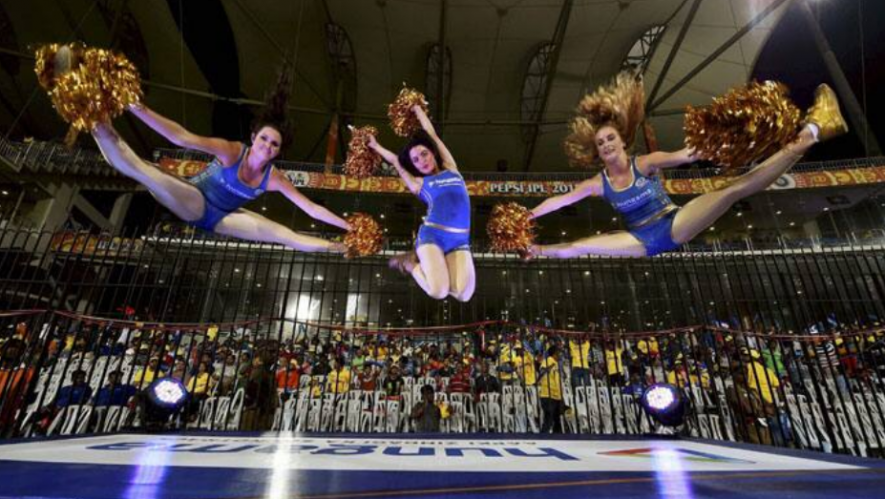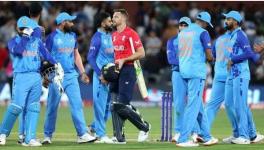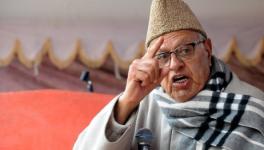Gambler’s Paradise (Part 1): Betting and Match Fixing Likely to be Higher in IPL 2020, Says Former ACSU Advisor

As per a media report, the BCCI won’t engage the services of ICC’s Anti-Corruption Unit, which is also based in Dubai, during the Indian Premier League (IPL 2020). This is music to the ears of bookies and fixers who are expecting huge betting volumes.
Expensive alcohol and delicious food were served copiously as the house party stretched into the wee hours. The five men celebrating were gathered in the living room of a two-bedroom, second storey house in a congested bylane of Old Delhi. They were celebrating a piece of news they had been waiting to hear for the past three months. The evening before, on August 4, the IPL Governing Council confirmed that the 13th edition of the Indian Premier league (IPL 2020) would be held in Dubai from September 19.
With the Covid-19 pandemic sweeping across the globe, live sports around has come to a grinding halt. With that the betting industry, dependent on live action too, went into a state of suspended animation. The five men gathered in the almost 90-year-old house that serves as their discreet rendezvous point were bookkeepers of two prominent underground betting syndicates which operate in Delhi. These bookkeepers are one of the most important cogs in the complex wheel that turns India’s gigantic illegal betting market. In an increasingly digitised world, they meticulously maintain analog records of every bet placed and every transaction made. It’s an ecosystem that thrives in the dark depths of illegality, but relies on unquestionable trust to move vast sums of money — both within the country and across international borders — through an intricate network of hawala operators. All betting transactions are recorded in red-coloured traditional ledger books called, lal kitab, in codes that only the bookkeeper maintaining it can decipher. Each bookkeeper has his own codes, which only he has the key for.
Click | For Tokyo 2020, The Olympic Fortnight Series Features and Videos
“IPL ki khabar sun ke bada sakoon hua. Hamara dhanda jo thaap pada hua tha, phir se chalu ho jayega. Hamey bhi apna aur ladko ka pet palna hai (It’s a big relief to hear the news of the IPL. Our business, which had come to a standstill, will start again. After all, we also have to feed our families and look after the boys who work for us),” said the host of the night.
For India’s betting industry, the IPL is the golden goose that keeps giving every year to the punters, bookies as well as the match fixers. It must be noted that betting and match-fixing are two separate issues that rear its head each year during the IPL season, but past experiences, and evidence, suggests that the two can be often intertwined, given the stakes involved.
India has not played any international cricket since March, following the cancellation of the home three-match ODI series against South Africa due to the global travel restrictions in place. “This year, the freeze on live sports due to the pandemic has created a lot of pent up demand for betting. Despite the economic slowdown, we expect an explosion in betting. We feel that the monies involved in the 2020 IPL will be significantly more than last year,” the Old Delhi-based bookmaker says.
It’s a view echoed by someone who has lifted the lid on the dark netherworld of India’s illegal betting industry. Neeraj Kumar, the former Commissioner of Delhi Police, has an enviable record of busting and investigating several high-profile match-fixing cases before joining the Board For Control of Cricket in India (BCCI) as an adviser to its Anti-Corruption & Security Unit (ACSU). With Dubai a safe haven for the kingpins of match fixing, Neeraj feels that the BCCI needs to exercise greater vigilance to prevent players being “approached” by them.
“I feel that the proportionality of attempts at fixing will be quite high because the stakes involved this time will be very high,” Neeraj told Newsclick in a telephonic interview. “But to what extent these attempts will be successful will depend on the level of policing.”
Also Read | Vested Motives Behind Indian Football’s Absurd ‘One City One Team’ Rule
Over the years, the amount of money punters have been placing on IPL matches has skyrocketed. Last year, the game between Mumbai Indians and Chennai Super Kings topped at £71 million (Rs 695 crore) on betting websites that have legal sanction in the UK.
“On one betting website alone, around $5 million (Rs 37 crore) per IPL game used to be put up on stake. You can imagine how much money would have been involved if all betting websites are taken into account. Mind you, this was on just those betting websites that are legal in other parts of the world. It is difficult to fathom how much money is involved in India’s illegal betting market,” Neeraj says. He was instrumental in busting the infamous 2013 IPL match-fixing scandal that led to the arrest of S Sreesanth, Ajit Chandila and Ankit Chavan of Rajasthan Royals along with a host of other people such B-grade actor Vindu Dara Singh and Gurunath Meiyappan of Chennai Super Kings, son in law of team owner N Srinivasan and a constant figure in the team dugout at the time.
Fixing vs Betting, the Size
Though both are illegal in India, betting and fixing are two different issues. Other than in horse racing, betting is illegal under the archaic Public Gambling Act of 1867 as well as the state gambling laws (the two exceptions are: Sikkim and Goa). In their case, the Information Technology Act, 2000, and Information Technology Intermediary Guidelines Rules, 2011, bar non-domiciled Indians from placing online bets on websites that might be hosted on servers in the state. Direct comparison should be made with the UK and Europe where in most countries, gambling is a perfectly legal activity.
“Betting, per se, is not a problem,” Neeraj Kumar points out. But given the monetary stakes involved in illegal betting in India, fixing the outcome of a game or a passage of play in order to influence the outcome of bets remains an extremely tempting and gainful proposition.
The size of India’s underground betting market is truly mind-boggling. In 2012, a Federation of Indian Chambers of Commerce & Industry (FICCI) consultation paper, quoting a KPMG study, pegged the annual betting market at Rs. 3,00,000 crore ($40 billion) , with a revenue earning potential of anything between Rs12,000 to Rs. 19,000 crore, if legalised and taxed. Doha-based International Centre for Sports Security (ICSS), a sports security and integrity body that has worked closely with the Indian Super League (ISL), estimated the size of India’s illegal betting sector at Rs. 990,000 crore ($150 billion approx) in 2016. More than 80 percent of this illegal activity is fuelled by cricket.
According to a former CBI officer, who requested for anonymity for this article, this mountain of money moves through a vast underground network of bookies and fixers — like the five men in the Old Delhi house — who work for betting syndicates controlled by prominent members of the mafia based in places out of the purview of Indian law such as Dubai, Kuala Lumpur and Singapore. The physical movement of money from one place to another is done through underground hawala networks, which too are controlled by the underworld. This has given these syndicates full control of the entire betting and fixing ecosystem that enables corruption in sports.
“Since 2000, when the CBI first investigated the depth of this rot, not much has changed in the basic modus operandi of the betting syndicates, controlled by known mafia bosses. Though they have since then acquired a great deal of technological sophistication,” says the former CBI officer who has investigated overseas betting syndicates. “This malice will continue to cast a dark shadow on cricket, and IPL in particular, because of its tailor-made format for betting, unless some radical steps are taken. One way to eliminate this problem is to legalise betting. I feel that the anti-corruption division of the BCCI would be extra busy this IPL because it’s being played in Dubai, where some of the top fixers are based.”
Not a New Menace
The observations made by Neeraj Kumar and the former CBI officer are not new. In 2000, when the country’s premier investigating agency was entrusted to investigate the extent of the match-fixing rot in the aftermath of the Tehelka.com sting operation that ensnared some India’s the top international cricketers, including former captain, Mohammad Azharuddin, it had clearly forewarned of the menace.
“There are clear signals that the underworld mafia has started taking interest in the betting racket and can be expected to take overall control of this activity, if not checked immediately with a firm hand,” the CBI report observed.
“It does appear that what may have been small-time wagering (which to some extent is inevitable) has now been replaced by an organised syndicate, and this syndicate has started interfering with the purity of the sport. It has been the negligence of the police and the other regulatory authorities that has allowed wagering to turn into an organised racket, particularly with the involvement of the underworld mafia. The game has lost a considerable degree of its credibility already, and it will be a matter of national shame if the problems which are, to some extent apparent from the evidence gathered and narrated in the report, are not immediately and decisively resolved,” the report added.
The 75-page analysis titled, CBI’S Report On Cricket Match Fixing And Related Malpractices, took an equally dim view of the BCCI’s response to match-fixing.
Also Read | Shashank Redemption: The Other Side to the Anti Indian Facade of the Outgoing ICC Chairman
“Although, there is no concrete evidence to suggest the direct involvement of any of the members of the BCCI in match-fixing, their resolute indifference does give rise to suspicion that there was perhaps more than that meets the eye. It defies credulity to believe that the apex body was oblivious to such rampant match-fixing and, therefore, did not find the need to investigate thoroughly the results of matches which are patently questionable,” the report read.
What has changed in the past two-decades? Not much, especially when it concerns the IPL, which has been plagued by match-fixing almost every year since its inception. The latest development reported by the Mumbai Mirror suggests the board has decided to do away with attaching integrity officers with each team for the 2020 IPL, because they would be playing in a “bio-bubble”. Further, the report suggests the board won’t engage the services of ICC’s Anti-Corruption Unit, which is also based in Dubai. This is news that is music to the ears of bookies and fixers.
BCCI’s latest stand is not only shows utter disregard for the Supreme Court’s decision on the Lodha Committee recommendations — attaching integrity officers with each IPL team was a key recommendation — it also betrays the mindset of the board officials about their seriousness to tackle corruption in one of the most expensive sports leagues in the world.
Even before the BCCI took the stand of doing away with integrity officers, Neeraj Kumar, the former advisor to ACSU, punctured the “bio-bubble” justification. “This year, the players will remain isolated because of the bio-bubble, but the name of the game is communication. With the kind of communication technologies that exist today, fixers don’t need to be physically present near the players. Any linkages that have to happen between fixers and the players will happen much before the start of the tournament, if it has not happened already,” he explains.
It’s apparent with the IPL shifting its base to the den of the kingpins of the fixing mafia, more policing is required, not less.
(The author, former managing editor of Sports Illustrated India, is an independent journalist based in New Delhi)
Get the latest reports & analysis with people's perspective on Protests, movements & deep analytical videos, discussions of the current affairs in your Telegram app. Subscribe to NewsClick's Telegram channel & get Real-Time updates on stories, as they get published on our website.
























